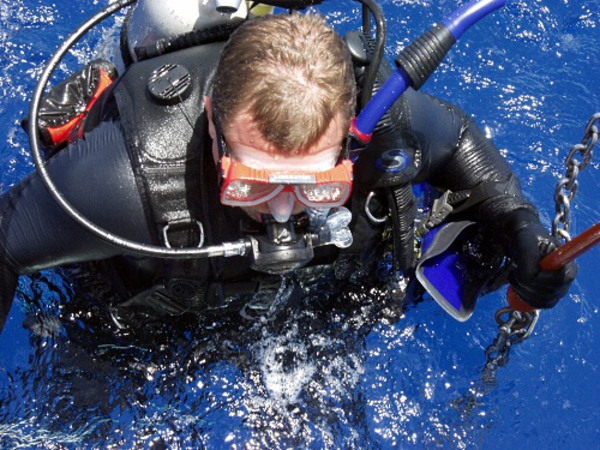Scuba diving provides a great experience swimming under the water and watching creatures in their natural habitats, and diving also provides a great deal of exercise. Though it’s not the most popular sport, scuba diving is certainly enjoyed by many, and there are plenty of other people who are interested in enjoying the diving experience at least once in their lifetime.
What some people don’t realize though is that in order to scuba dive, you need to go through training and become certified. If you don’t go through the proper training, you could end up finding yourself in serious harm. So before you consider scuba diving, here are a few things you should know.
1. Get a medical exam.
Before you can even start training to become scuba diving certified, you need to have a medical exam done by your doctor. Your doctor needs to perform various tests to ensure that you are fit enough for diving.
Most people of any age are allowed to take scuba diving lessons, but there are certain health conditions that people have that may not be safe for them to scuba dive. Anyone with any type of heart condition or asthma should not dive, as these serious conditions can have a major impact on your diving experiences.
Get the medial exam done before you contact a trainer. That way, if you’re deemed unfit, you can work on becoming fit. And if they say you’re healthy enough, you’ll already have this step and the clearance out of the way.
2. Contact a professional instructor.
After your doctor has cleared you, call a few instructors in your local area. Most people think that you have to live near the ocean in order to become certified, and this isn’t true. Training and certification can take place in most bodies of water, so don’t think you’re out of luck if you live in the deserted areas.
It’s always a good idea to contact more than one training establishment before making a decision. Each trainer may not offer the same perks or amenities as others, and they can easily vary in price. Don’t hesitate to shop around before signing up for classes, and make sure to have all of your questions answered.
It’s also important that you check the professionalism of your instructor. Allowing your friend to give you a few pointers he read off the Internet does not qualify as training. A professional is the only way to go.
3. Pay attention.
Every piece of information you learn in your diving lessons is important. Diving can be dangerous if it is not done correctly, as the slightest increase in speed during ascending or descending can cause physical harm to the diver.
If you’re not going to take diving classes seriously, you shouldn’t be diving. Remember that the class and the things you learn in class can have an affect on your life, and your instructor is not going to certify you just for showing up to class. Be on time, show up to every class, and pay complete attention. If you are having trouble with a piece of equipment or understanding some of the information, ask. It’s better to have a thorough understanding than none at all.
There is a lot of knowledge and physical strength and agility needed in order to dive, so if you are interested in diving, you need to thoroughly think it over first. Always have a medical exam, use a legitimate certification agency and pay attention. These three things can easily make or break your diving experiences.
Rosalie Fisher is a writer and blogger. She likes to blog about vacationing and scuba diving. Rosalie also writes articles for hotels and recently promoted Bahamas luxury hotels.
Photo credit: schdig

